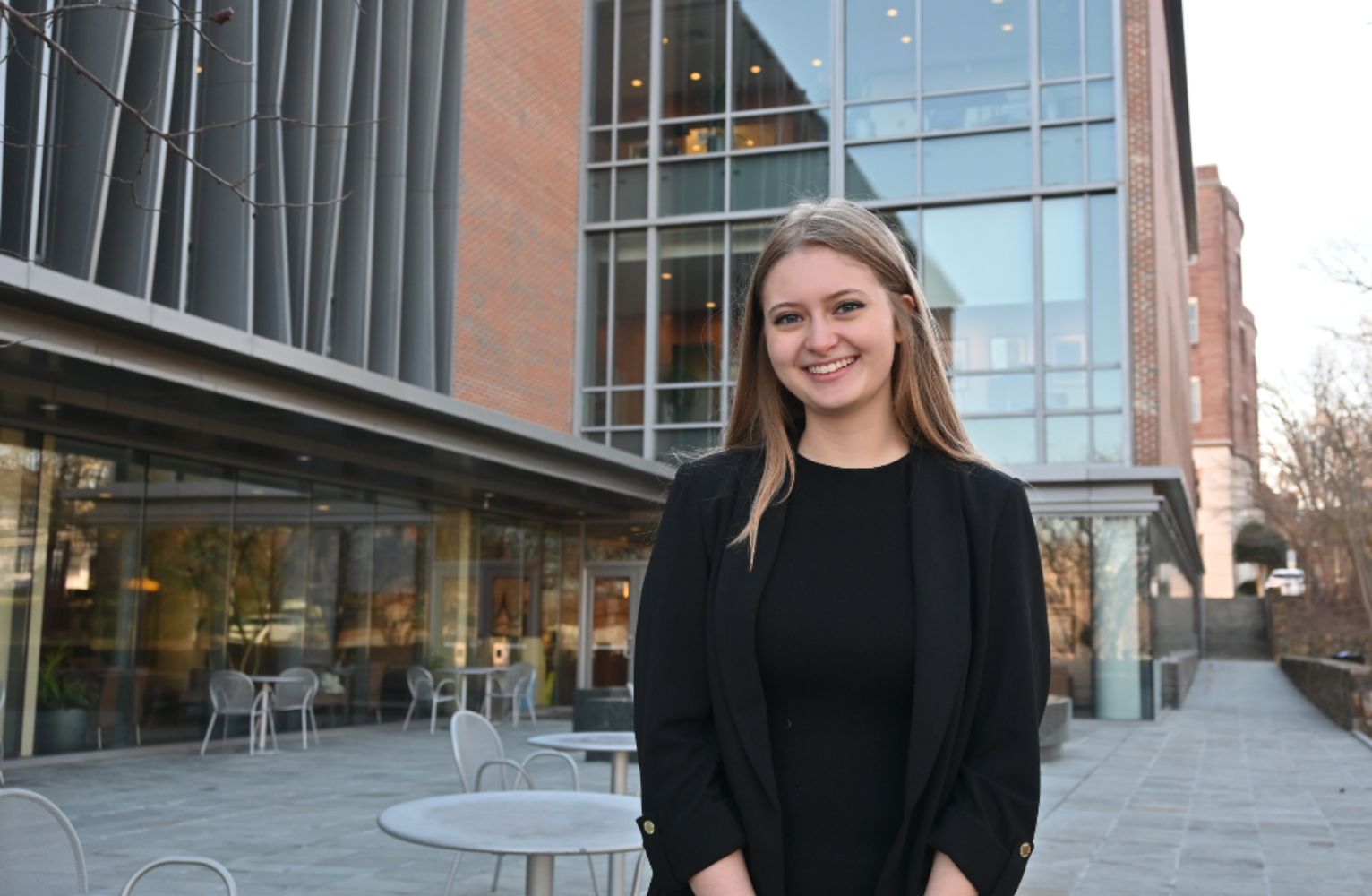
When Ruitian Yan left her first undergraduate climate science class, she remembers feeling deeply concerned.
“Oh, my God,” she recalled thinking, “Global warming is happening so fast, I’ve got to do something.”
After graduating from Brown University in 2020 with a bachelor’s degree in environmental science, Yan started a career in finance and began reviewing investment projects and portfolios from environmental, social and governance angles. In the course of her work, Yan came across a research paper on climate risk and property values authored by Miyuki Hino, an assistant professor in the city and regional planning department in the UNC College of Arts and Sciences and an adjunct assistant professor in Carolina’s Environment, Ecology & Energy program.
Yan immediately knew she wanted to study the subject further and reached out to Hino, who encouraged her to apply for the doctoral program at UNC-Chapel Hill. Yan began her doctoral studies in the Environment, Ecology and Energy program in fall 2023. A member of The Graduate School’s Royster Society of Fellows, Yan was impressed by the guidance other students offered her during her initial visit to Carolina.
“A main reason I chose to come to UNC is because of the community,” she said. “The PhD program is going to be hard, so I think having great people with me who share my values and who I can learn from is a great part of what UNC can provide.”
Yan will work with her peers and advisers on the Carolinas Collaborative on Climate, Health and Equity, a research project funded by the National Oceanic and Atmospheric Administration’s Climate Adaptation Partnerships program. It is a community-based research project that aims to combine social and physical sciences as well as regional knowledge to address communities’ vulnerabilities to climate threats.
The focus on communities is important to Yan. She hopes to help communities that are vulnerable to climate risks have their voices heard and safely manage their risk, specifically in North Carolina.
“In North Carolina, especially in the coastal areas, there’s a lot of climate vulnerability,” Yan said. “Part of my research will be locally based, and that’s something I’m eager to participate in, especially living in the area and feeling the impact of that research. That’s something important for me to be a part of.”
Related Stories




